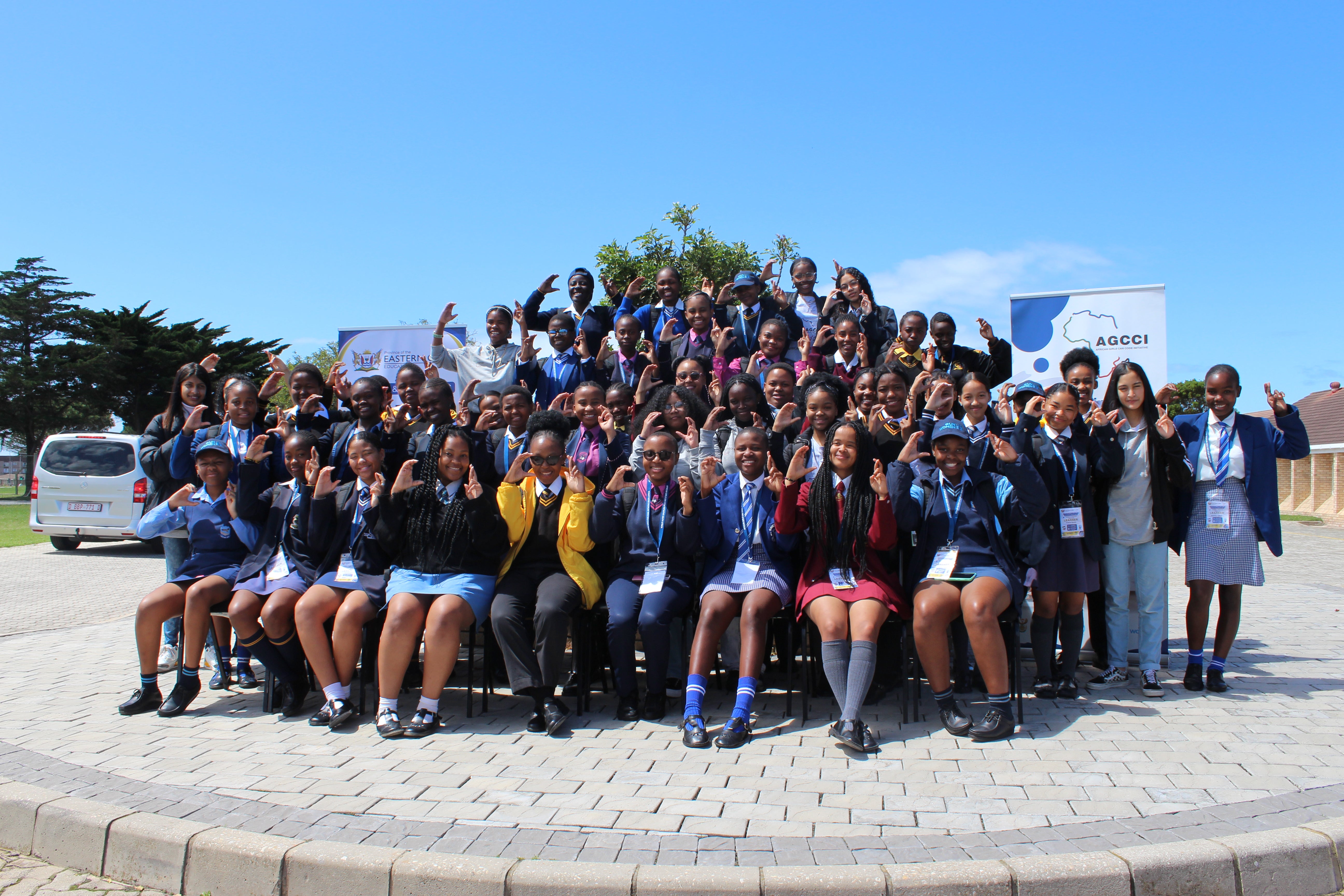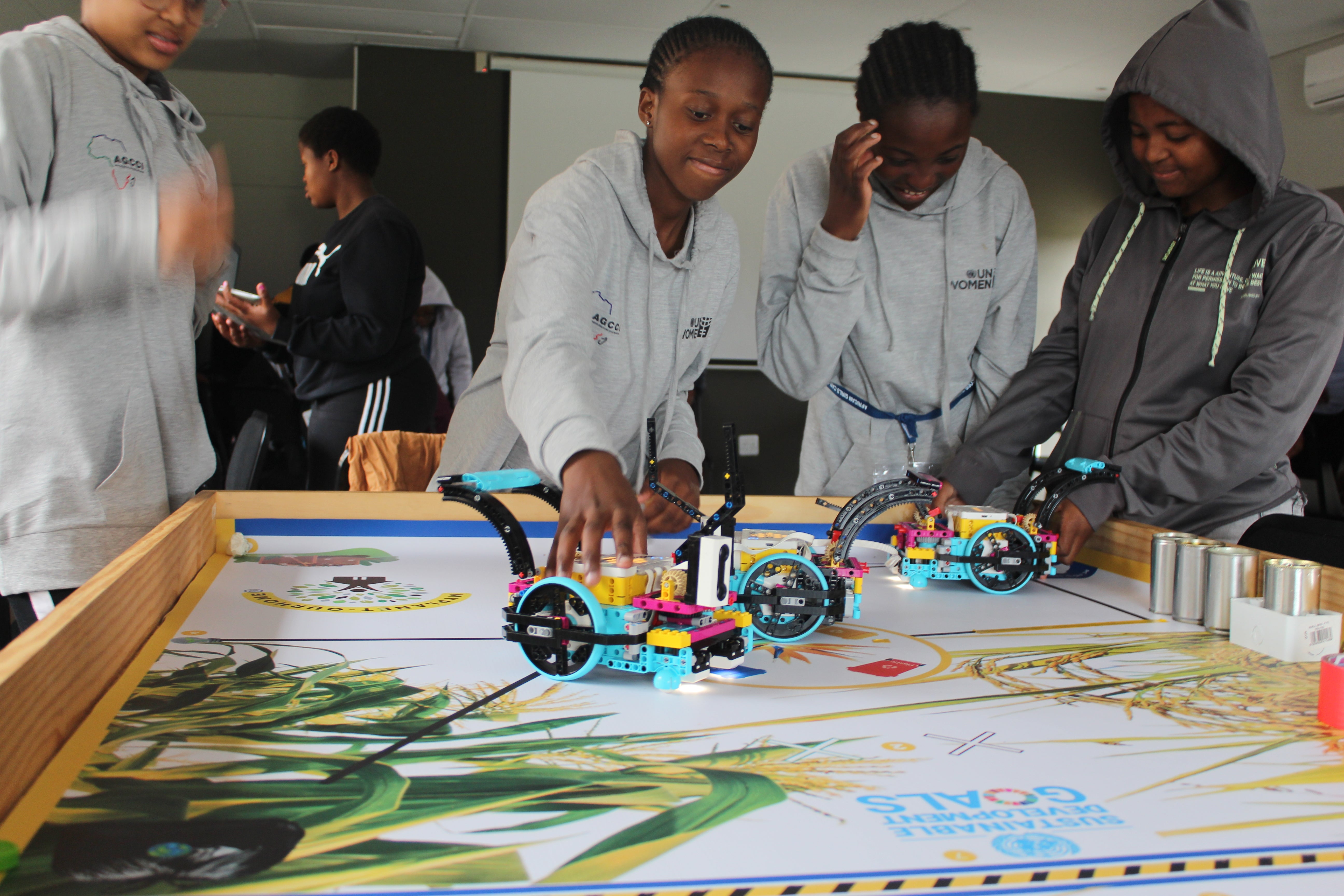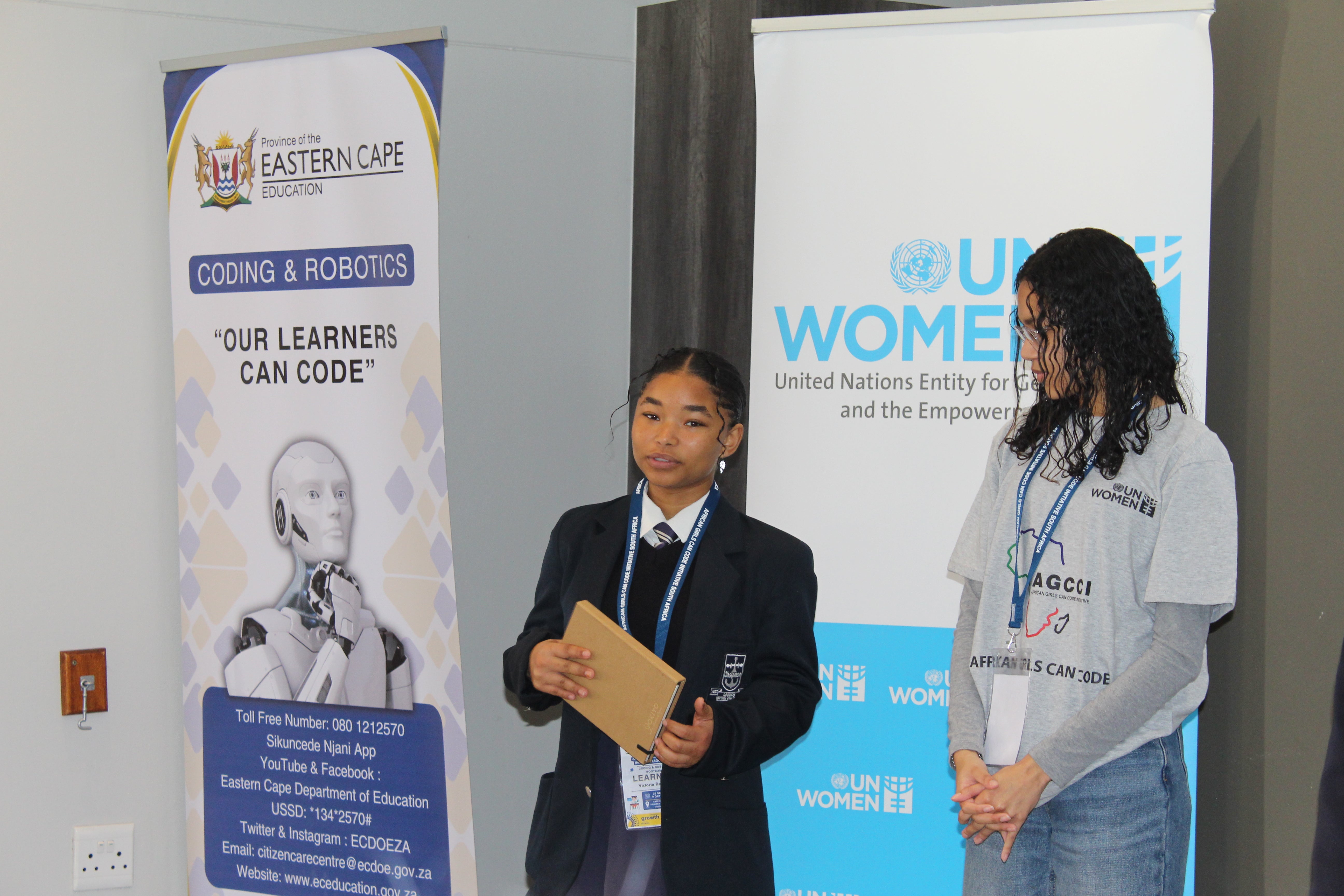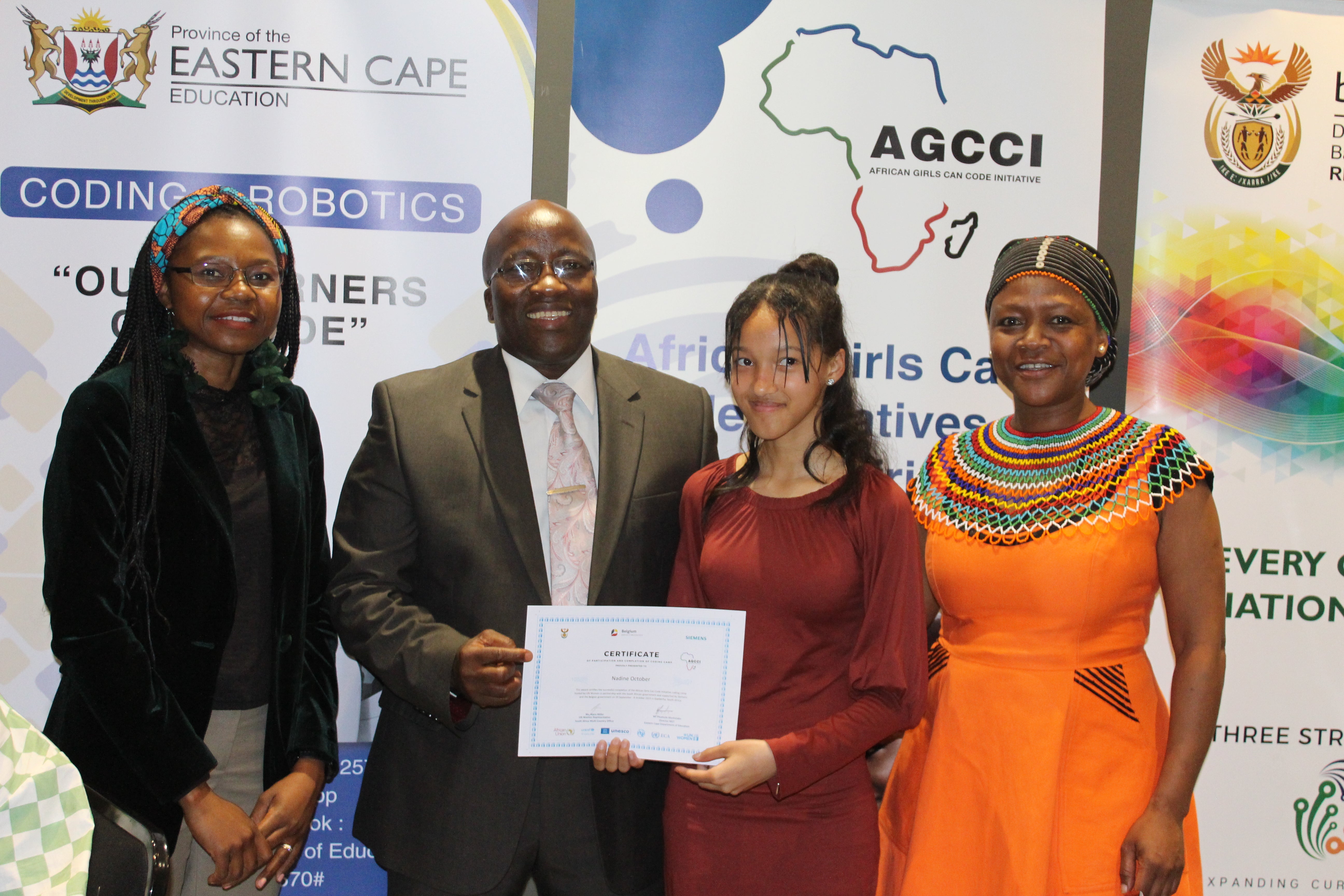Bridging the STEM Divide: AGCCI's impactful journey in South Africa continues with a second cohort of girl learners
Date:
In an effort to bridge the gender gap in STEM fields and empower young girls across South Africa, African Girls Can Code Initiative embarked on an inspiring journey in Gqeberha, Eastern Cape. For ten days in Gqeberha, from September 29 to October 8, fifty girl learners from the coastal provinces of South Africa, including the Eastern Cape, Western Cape, Free State, KwaZulu Natal, and Northern Cape, participated in a coding and robotics boot camp aimed at equipping them with the skills and knowledge needed to excel in the world of technology.

At the current pace of progress, it might take 268 years to achieve gender equality. Speaking during the launch of the African Girls Can Code Initiative (AGCCI) boot camp in South Africa, Aleta Miller, UN Women Representative for the South Africa Multi-Country Office cited it as an “unacceptable timeline” and expressed the urgency for gender equality and women empowerment. “Initiatives like AGCCI, which equip brilliant young minds with 21st-century skills, represent a crucial step in the right direction,” Miller emphasized.
The selected learners were taken through an intensive curriculum focused on coding and robotics. Unlike traditional learning, this program encouraged hands-on learning, allowing the girls to work with real-time robots and learn how to code them. In addition to technical skills, the learners transformed their design of thinking, developed problem-solving abilities, teamwork, and soft skills like communication and self-awareness. The comprehensive curriculum covered a wide array of topics, including user interface/user experience, website development, mobile application development, robotics, and programming.

The AGCCI boot camp also provided technical knowledge but also boosted the girls' confidence. AGCCI Bootcamp Facilitator, Emma Mphahlele, noted that the participants showed increased self-confidence, evident in their body language and assertive voices by the end of the camp. This empowerment was a significant outcome of the program.

While the learners received certificates at the conclusion of the 10-day boot camp, the journey does not end here. UN Women’s, Siemens, introduced a 6-month mentorship program, providing them with a supportive community of peers from all over the African continent. This mentorship programme will guide them through Grade 12, offering career advice from mentors in fields such as computer science, coding, and entrepreneurship. Additionally, they will continue to acquire essential skills like collaboration, creativity, and adaptability, preparing them for the challenges of the 4th industrial revolution. AGCCI has not only opened doors but also created a pathway for these young girls to shine and contribute to the world of technology, thus fostering a more inclusive and equal future.

“The national Department of Basic Education aligns itself with the UN Women and partners’ goal to reach 2000 girls with coding and STEM skills. We look forward to a strengthened partnership that will allow us to host more boot camps in the future,” said Christo Jones, Deputy Direct MST, Department of Basic Education as he investigates what the future of these programs looks like in South Africa.
To contribute to the solution on the African continent, UN Women and the African Union Commission (AUC) in collaboration with the International Telecommunication Union (ITU), commissioned the AGCCI program in 2018. Phase 2 of the project is funded by the government of Belgium, Siemens and the Finnish NatCom. In South Africa it is implemented in partnership with the Department of Basic Education and the Department of Science and Innovation.